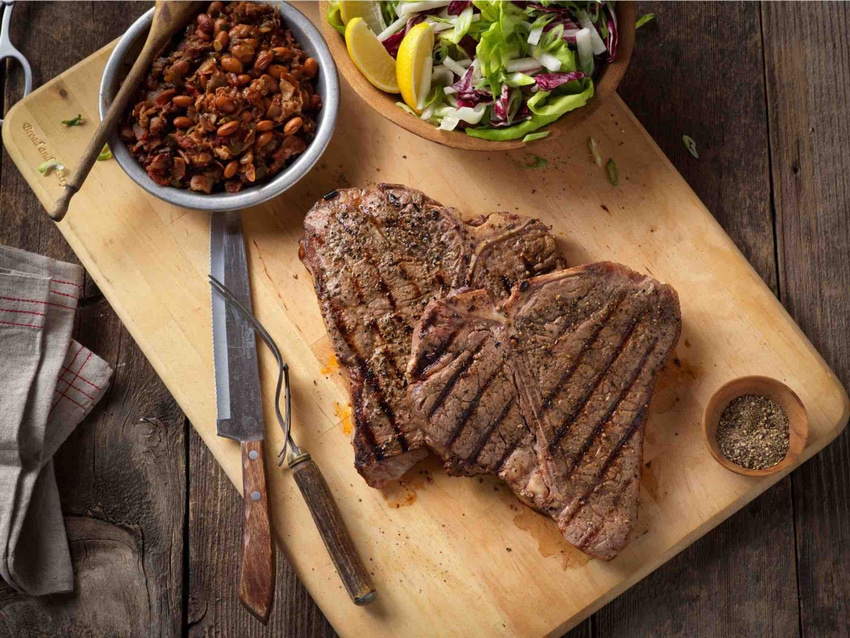Despite what the WHO says, a new study affirms that a diet rich in animal fats and proteins will boost moods.
April 22, 2020

While the world is focused on slowing the spread and flattening the curve of COVID-19, we cannot neglect the mental health repercussions of shutting people in their houses, taking away their livelihoods and limiting how they can spend their free time.
In some parts of the country, you can’t even buy a gallon of paint or landscaping supplies for home and garden projects while you’re social distancing.
Without question, we will see an increase in depression, anxiety, suicide, drug and alcohol abuse and more.
According to the Mayo Clinic, “Stress is a normal psychological and physical reaction to the demands of life. Everyone reacts differently to difficult situations, and it's normal to feel stress and worry during a crisis. But multiple challenges daily, such as the effects of the COVID-19 pandemic, can push you beyond your ability to cope.
“Many people may have mental health concerns, such as symptoms of anxiety and depression during this time. And feelings may change over time.
“Despite your best efforts, you may find yourself feeling helpless, sad, angry, irritable, hopeless, anxious or afraid. You may have trouble concentrating on typical tasks, changes in appetite, body aches and pains, or difficulty sleeping or you may struggle to face routine chores.
“When these signs and symptoms last for several days in a row, make you miserable and cause problems in your daily life so that you find it hard to carry out normal responsibilities, it's time to ask for help.”
In an article titled, “COVID-19 and your mental health,” the Mayo Clinic staff offer recommendations for lowering your stress, which by the way, includes limiting your exposure to news media that can heighten fears of the disease.
Read the article for tips and resources to get help by clicking here.
Mayo Clinic also suggests we eat healthfully by limiting junk food and refined sugar, and they suggest we look to “credible” resources like the World Health Organization.
Yes, the same WHO that was recently defunded by President Trump. Note that WHO is the group that classified processed red meat as a carcinogen several years ago, which of course, was thoroughly debunked. In addition to beating up on beef jerky, WHO has previously classified yoga pants, coffee, sunlight and wine as cancer-causing agents, so take these recommendations with a grain of salt.
With that history of outstanding advice in mind, it’s no surprise that WHO is now offering shaky dietary advice to protect ourselves during the COVID-19 pandemic. WHO suggests we avoid saturated fats including fatty meat, butter, cream, cheese and lard, and to choose white meat and fish over red-meat.
These recommendations echo what’s being put out by other groups including the Food and Agriculture Organization of the United Nations (FAO), which suggests we “consume a diet rich in whole grains, nuts, and healthy fats such as in olive, sesame, peanut or other oils rich in unsaturated fatty acids. Such diets may support your immune system and help to reduce inflammation.”
These recommendations lead me back to mental health during this global crisis. Turns out, a steak or burger will improve our moods and fight off depression and anxiety.
In a new study published on April 20, 2020 in Critical Reviews in Food Science and Nutrition, researchers examined “the relation between the consumption or avoidance of meat and psychological health including depression, anxiety and related phenomena."
Main findings from the report include:
1 in 3 vegetarians suffer from depression or anxiety in their lifetime
compared to meat-eaters, vegetarians are 2-times more likely to take prescription medications for mental illness
compared to meat-eaters, vegetarians are 2-3 times more likely to think about or perform self-harm behaviors (e.g., suicide)
the exclusion of any food group, and especially meat and poultry, is associated with increased odds of psychological disorders
According to researchers, “While the risks and benefits of vegan and vegetarian diets have been debated for centuries, our results show that meat eaters have better psychological health. These findings have implications when defining what constitutes a ‘healthy diet.’ Mental health may need to be emphasized when evaluating the benefits and risks of particular dietary patterns.”
To read the entire results of this study, click here.
In anticipation of those who will send me angry hate mail for negating the WHO and FAO recommendations, let me suggest you eat a T-bone for lunch and see how you feel.
As for me, we’ll keep grilling beef at our house, knowing it will improve our moods and support our brains, bodies and immune systems during these troubling times.
The opinions of Amanda Radke are not necessarily those of beefmagazine.com or Farm Progress.
About the Author(s)
You May Also Like





